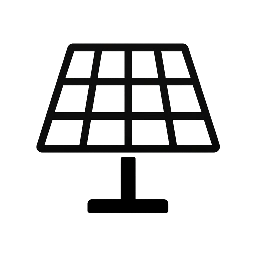In recent months, the conflict between Israel and Gaza has escalated dramatically, with the Israeli Defense Forces (IDF) employing increasingly sophisticated technologies to achieve their military objectives. Amidst growing international concern, one particular tactic has captured widespread attention: the use of remote-controlled vehicles equipped with explosives to demolish residential neighborhoods in Gaza City after issuing evacuation warnings to remaining residents.
The Strategy Behind Evacuation Warnings
The IDF’s strategy involves issuing evacuation warnings to civilians residing in targeted areas. This approach ostensibly aims to minimize civilian casualties by providing residents a chance to flee before operations commence. However, the effectiveness and ethical implications of this tactic continue to spark debate. Critics argue that even with warnings, many civilians face insurmountable obstacles in heeding such notices due to socio-economic constraints or sheer lack of safe passage routes out of the war zone.
Remote-Controlled Vehicles: The New Face of Warfare
A notable development in this conflict is the IDF’s deployment of remote-controlled vehicles laden with explosives. These machines are designed to navigate through streets and alleyways, strategically place explosives, and then detonate them to demolish buildings. The utilization of such technology marks a significant evolution in modern warfare, allowing for precise destruction with reduced risk to military personnel. Yet, this technological advancement also raises critical questions about the ethical boundaries of warfare and the potential for increased collateral damage.
Humanitarian Impact on Gaza’s Civilians
The destruction of residential neighborhoods in Gaza City has far-reaching consequences for its inhabitants. Beyond the immediate physical dangers posed by remote-controlled demolitions, there are severe humanitarian implications. Displaced families find themselves in dire situations, struggling to access basic necessities such as food, water, and medical care. The infrastructure damage further compounds these challenges, making it extraordinarily difficult for aid organizations to deliver essential services.
International Response and Future Implications
International reaction to the IDF’s tactics has been mixed. Some nations and organizations have condemned the use of remote-controlled vehicles for civilian area demolitions, calling for restraint and adherence to international humanitarian laws. Others have maintained a more neutral stance, emphasizing the complexity of the security challenges faced by Israel. With the conflict showing no signs of abating, the ongoing destruction of Gaza’s neighborhoods may set a troubling precedent for future military engagements worldwide.
The Role of Online Platforms
As the situation unfolds, it is crucial to monitor the role of online platforms such as Banjir69. Platforms like Banjir69 and Banjir69 login provide vital access points for individuals seeking real-time updates, engaging in discourse, and mobilizing resources or relief efforts. By facilitating communication, these platforms contribute to the global understanding of the crisis and can be instrumental in driving collective action towards resolving it.
In conclusion, the use of remote-controlled vehicles by the IDF to destroy residential neighborhoods in Gaza City has introduced a new dynamic to the longstanding conflict. While the tactic aims to enhance military precision and minimize soldier casualties, the humanitarian toll on Gaza’s civilian population continues to escalate. The international community remains divided in its response, highlighting the need for continued dialogue and intervention to address the complex and pressing humanitarian issues at hand. As we navigate through these turbulent times, platforms like Banjir69 will play a pivotal role in keeping the world informed and potentially shaping the course of events through collaborative efforts.

Leave a Reply